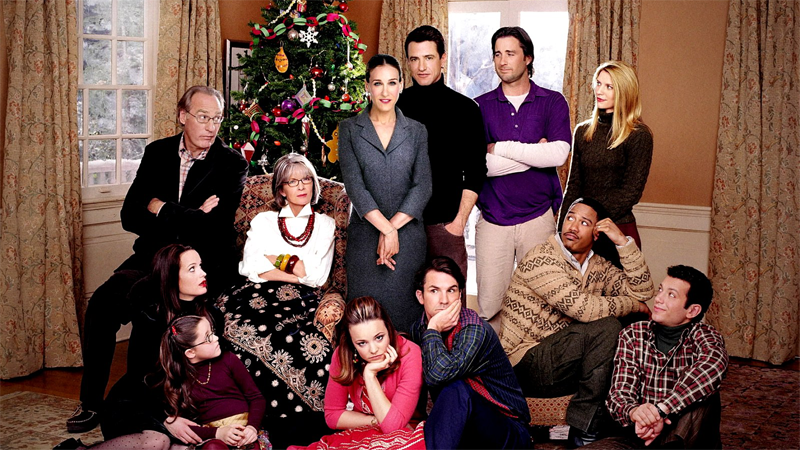
Not only is this the polite thing to do, it's also a way to put the focus on food instead of any issues between you and a family member. Talk about recipes or that cool restaurant you went to the other day. Once your dish is finished, people will be thankful and praise you for it. Good will everywhere!
Collaborate on a creative project
My family and I like to recreate photos of us from the '80s. First off, it's fun. But beyond that, it's a way to celebrate our long history together. It's hard to be annoyed at someone when you're looking at a baby picture of them. If photography isn't your thing, just look through family photos together or play a game of some kind.
Prepare a few safe anecdotes

Your relatives will ask you what's going on with you these days. Without proper preparation, you might say "Uh, not much" or, worse, something like "Oh, you know, blocking you from Facebook because of your wack political beliefs." The results will either be awkward or involve broken dishes. So go into your family function with some uncontroversial topics. Talk about a new hobby you've picked up or a fun trip you're planning or a new podcast you fell in love with (ahem!).
Practice empathy

This one is the hardest, but the most crucial. A relative might say something hurtful or just outright ignore you. The instinct is to confront them. Open communication and having it out can be healthy, but not when the rest of the family is assembled. Save it.
My dad doesn't like that I'm gay so we don't always get along, to say the least. I used to pointedly avoid him or pick at the scab that is our relationship by picking a fight. Neither option produced positive results. In recent years, I've taken a different approach: empathy.
In episode 2 of Aziz Ansari's Master of None, the present day stories of two of the main characters' immigrant dads are juxtaposed with their pre-America lives. The viewer gets to witness all the struggle and adversity that isn't being communicated to the kids. Aziz and his friend realize they don't know anything about their fathers and make a point of asking questions to find out more about these people (and they are real people with their own set of beliefs and fears and dreams; they're not just your parent!). Once they find out a little bit more, they find new appreciation for their dads and become more thoughtful with future interactions.
Like those characters, I don't know much more than a rough outline of my dad's life before I came onto the scene. I'll probably never know the full extent of what he went through to create a new life for himself and me. But something I do know is that his experiences have shaded his worldview in whatever way and the least I can do is be curious about what those experiences were and ask to hear his stories. The more personal information you have, the easier it becomes to empathize.
I'm working on no longer trying to change my dad and respecting him for who he is, in the hope that he'll do the same in return. We're not there yet, but I'm hopeful.
A version of this guide appears in this episode of The Cooler, a podcast you really should be listening to:






